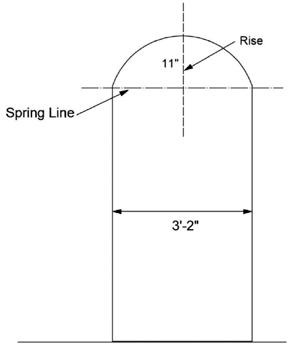
3 minute read
Signatory Spotlight: HMI Industrial Contractors
Hmi industrial contractors——
For Ruth Gilman, hard work “feels like second nature.” From a family of Watsonville-area sharecroppers, she grew up in the fields, picking strawberries all summer and, when school started, in the early mornings and late afternoons. Mechanical projects weren’t a big deal either; as a teenager, she replaced the engine on an old Ford Maverick.
Advertisement
It wasn’t a big stretch then, after her family moved to the Sacramento area, to go to work in the office of Newell Mechanical, a union signatory millwright shop. That’s where she met her husband, Don, a secondgeneration millwright and part owner of Newell Mechanical. She and Don eventually bought out the Newell family and ran the company successfully together for 13 years, selling it in 2000.
After 10 years of “pursuing other interests”—like real estate development— the Gilmans got back into the industry when Harrelson Mechanical came up for sale.
“I had really missed being in the trade,” Ruth says, “so when the opportunity came up, we jumped on it.” She assumed the CEO

Mike Amparan, a member of Millwrights Local 102, working for HMI Industrial Contractors, doing what it takes to get the perfect angle for the perfect weld on a condenser for a tomato-paste processing plant.


ontractors—— better, smarter, faster

Mike Amparan building a pump base at HMI Industrial Contractors.

Hollis Hoisington cleaning up rotary screen veins.


role in 2015 when Don Gilman retired. Today, the company, renamed HMI Industrial
Contractors, is a leading mechanical general contractor and the only one that’s woman-owned in all of California.
“All the members here, and everyone in the trade knows that Ruth knows the industry,” says General Manager Dan Ravetto. “They know she knows what she’s doing, and that she’s been running the business successfully. Gender just isn’t an issue.”
Being union signatory has helped. “Being in the union gives us access to a great labor pool, the best craftspeople in the industry,” Gilman says. “People coming out of the millwright apprenticeship know the basics. They know their way around the tools. But our industry is so varied, on-the-job training is critical. There’s something new every day, but we get people who are trained and ready to learn.”
Once they get to HMI, workers tend to stay. General Foreman Ryan Randall, for example, has been working with the Gilmans since he was an 18-year-old apprentice—cleaning, painting, delivering. Thirty years later, he’s never thought about working anywhere else.
“It’s a great atmosphere,” Randall says, “they stand behind you, it’s a fantastic place to work, and of course, the pay and benefits are the best.”
HMI also competes successfully because of the investment the Gilmans have made. Rental equipment is sometimes scarce and expensive, so over the years HMI has purchased millions of dollars worth of specialized equipment. It’s a wide range— from 150 different forklifts and manlifts of various capacities to a state-of-the-art laser cutter. “It means we can mobilize and get on the job faster than anyone else,” Ravetto says.
Members of Local 102 often sport a “we make the engineers look good” sticker on their hard hats. Indeed, “it’s a great opportunity for young people to have creative and rewarding work,” Gilman says. “They collaborate with engineers and customers to solve problems, so at the end of each day, they look back at all these amazing things they’ve created.”
HMI is committed to training in-house team members to become leaders, “and we are actively recruiting millwrights who want to be leaders to join HMI,” Gilman says. “It’s extremely rewarding work.”
Andrea D’Angelo, VP of Business Development, adds, “We are especially excited, as we are investing in new markets and growing our territory, to be the leading millwright company in the West.”







